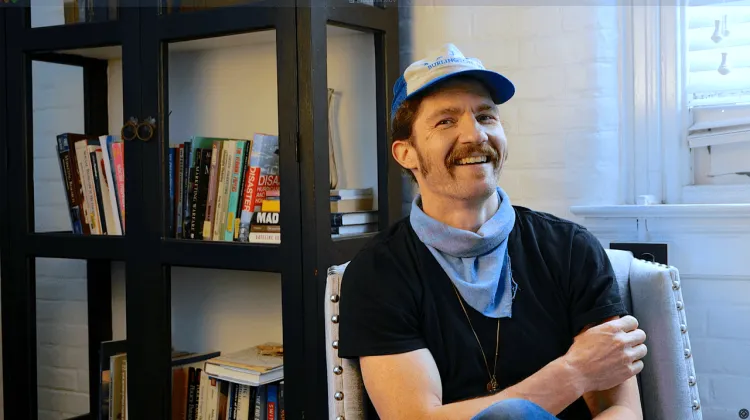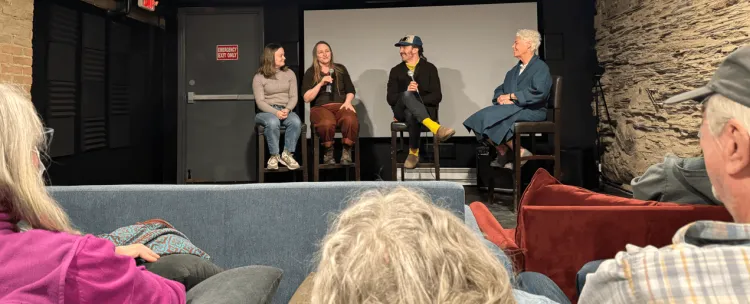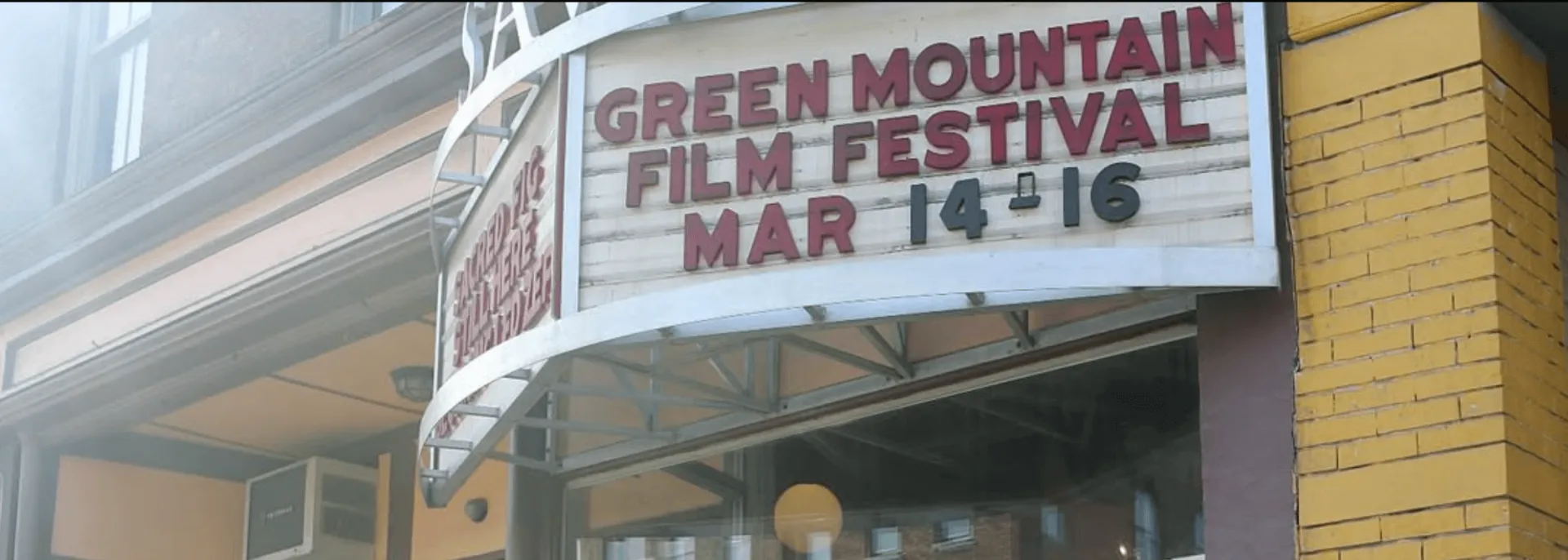CDAE Lecturer Myles Jewell expects his documentary on the history of Chittenden Community Television to take even longer since he is combing through the CCTV archives that house over 40 years of videotape of approximately 70,000 programs. Though CCTV originally stood for Chittenden Community Television, it now is an organization called the Center for Media and Democracy. Jewell’s new film, Burlington This is You! chronicles CCTV's important history and role in shaping and supporting community activism and media advocacy within Chittenden County and beyond.

CCTV was founded in 1984 and celebrated its 40th Anniversary last year. CCTV’s founders, Lauren-Glenn Davitian and Nat Ayer, established the public access cable TV channel so that a broader public could hear local voices and stories that larger news outlets would not cover. Public access TV stations around the country arose from the belief that people could use video to build community and improve the transparency of the local political process. Jewell describes the importance of community media such as CCTV this way,
“The idea is that you can hold public officials accountable for what they're saying, and also it's an accessibility issue.”
The four decades of Burlington politics that CCTV has covered since its inception are of national interest in part because Bernie Sanders became Mayor of Burlington during the 1980s. His rise to national political prominence can be traced in part to media coverage he received early in his career that showcased his progressive ideology and gave him a way to disseminate his liberal message to an audience beyond Burlington.
Jewell describes an aspect in which community media production methods depart from mainstream news coverage,
"We're really interested in what ethical considerations we need to have when we're representing somebody's story. How do we how do we create practices that prioritize the people whose story it is as opposed to our own positionality? How do we highlight their perspectives? So, we're definitely trying to push this kind of ethical approach, this kind of values-based approach. That's something that's really important to me. A lot of this comes through simple ideas around transparency. Are you able to clearly articulate why you're there, where this is going to be shown, and how it's going to be shown?”
Keeping the spirit of community involvement at the forefront of his process, Jewell screened his work-in-progress last weekend during the Green Mountain Film Festival at the Savoy Theater in Montpelier. After screening his current 40-minute version for a public audience, Jewell explained that the intention is to have a final film of twice that running length. Then Jewell and a panel of current CCTV employees, including founder Lauren-Glenn Davitian, spoke with the audience and invited input. The audience response was overwhelmingly positive, with some audience members speaking firsthand of the political events depicted in the film, such as a visit to Burlington by the labor leader Abby Hoffman shortly before his death.

Jewell sees Community Access Television's role as more important than ever: "It's a really unique time right now. And I think, to name it, you know, a lot of people are talking about a mistrust of information. So, I think one of the things that is really important in CDAE is we look at information in streams, you know, at our whole information ecosystem. Not only is there a need for journalism, broadly speaking, but also local journalism. And there's also media literacy that needs to happen, which is that we need to understand information streams critically. I think a great way to do that is to get people to create their own media, let's say, in my case, videos. If you're going to really understand how information is coming at you, you need to have a rich media vocabulary. So that you can really break media down as a language and understand how you're going to do it, and then you can actually put that into practice.”
Jewell received a 2024 LEF Foundation Production Grant as well as a 2021 LEF Foundation Early Development Grant for this project. He teaches courses in Community Media Production, Documentary Film for Social Change, and Sports Media in the Department of Community Development and Applied Economics at UVM.
